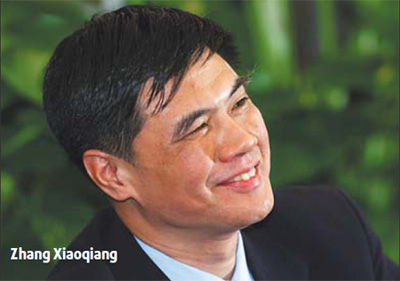Top Biz News
NDRC official rings 'hot money' alarm
(China Daily/Agencies)
Updated: 2010-01-06 08:04
 |
Large Medium Small |

China may see "huge" inflows of speculative capital as foreign investors step up bets on yuan gains, making it difficult to manage liquidity, said Zhang Xiaoqiang, vice-minister of the National Development and Reform Commission (NDRC).
Loose monetary polices in developed countries, a weakening US dollar and China's economic recovery will put renewed pressure on the yuan to appreciate, Zhang said in a statement yesterday.
Overseas investment is estimated to have increased in 2009 and the country is becoming more reliant on foreign economies, he said.
China's foreign exchange reserves climbed 17 percent in the first nine months of 2009 to $2.27 trillion, the world's largest holdings.
Rallies in Asian currencies last year put other nations in the region at a disadvantage in global trade because strength in their currencies pushes up prices of goods for export.
"There will be more calls for a stronger yuan from emerging-market countries when their currencies continue to gain against the dollar this year," said Xing Ziqiang, a Beijing-based economist at China International Capital Corp. "There may be a 25 percent increase in the amount of hot money."
Dollar slump
The yuan has remained relatively stable against the dollar in recent months. Premier Wen Jiabao said on Dec 27 that the nation would "absolutely not" yield to international calls for renewed yuan appreciation.
The US currency may slump 6 percent in the first quarter as investors buy emerging-market assets, according to SJS Markets Ltd.
| ||||
The Indonesian rupiah and South Korea's won have advanced more than 15 percent over the past year.
Twelve-month non-deliverable yuan forwards rose 0.07 percent to 6.6480 per dollar in afternoon trade in Hong Kong, indicating brokerages are betting on a 2.7 percent appreciation in the currency in a year.
In the spot market, the yuan was unchanged at 6.8273, according to China Foreign Exchange Trade System.
The yuan may rise 3 percent to 5 percent against the dollar this year, CICC's Xing said. The Chinese currency advanced 21 percent in the three years after a peg was scrapped in July 2005.?













